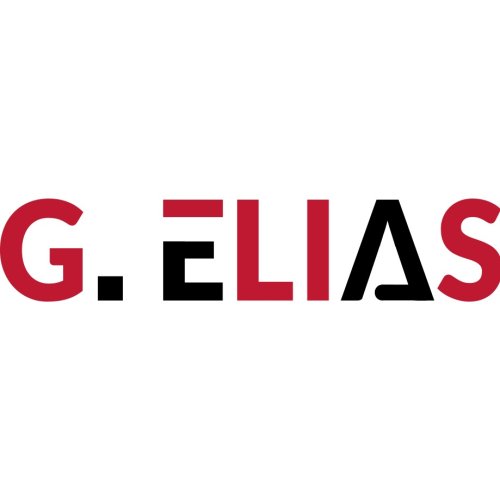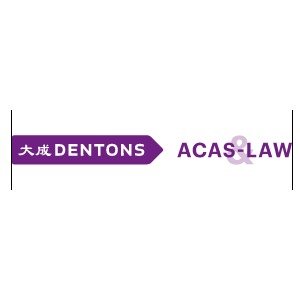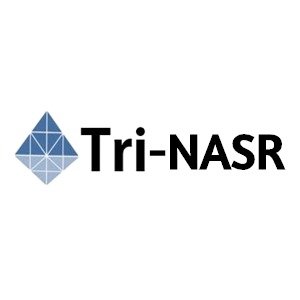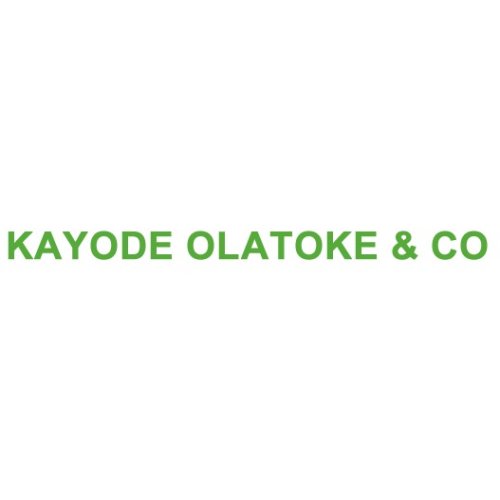Best Project Finance Lawyers in Abuja
Share your needs with us, get contacted by law firms.
Free. Takes 2 min.
List of the best lawyers in Abuja, Nigeria
About Project Finance Law in Abuja, Nigeria
Project finance is a specialized area of law and finance that involves securing funding for long-term infrastructure and industrial projects based on the projected cash flows of the project rather than the balance sheets of project sponsors. In Abuja, Nigeria's capital, project finance is vital for the development of sectors such as power, transportation, healthcare, real estate, and oil and gas. The legal framework for project finance deals with risk allocation, financing structures, regulatory compliance, and the negotiation of complex contracts. The goal is to facilitate the completion of large projects by securing investments while distributing risks among all stakeholders, including lenders, investors, contractors, and government agencies.
Why You May Need a Lawyer
Engaging a lawyer experienced in project finance can be essential for several reasons:
- Drafting and negotiating loan agreements, security documents, and concession arrangements.
- Structuring joint ventures, Public-Private Partnerships (PPP), and Build-Operate-Transfer (BOT) projects.
- Ensuring compliance with Nigerian laws, regulations, and sector-specific guidelines.
- Managing due diligence and risk analysis for investors and lenders.
- Negotiating with regulatory bodies, stakeholders, and government officials.
- Navigating land acquisition, permits, and environmental approvals.
- Resolving disputes arising during project execution or operation.
- Dealing with cross-border financing and foreign investment regulations.
A project finance lawyer helps protect your interests, ensures contractual clarity, and minimizes legal risks throughout the life of a project.
Local Laws Overview
Project finance in Abuja, Nigeria, is guided by a mix of federal and state laws, as well as sector-specific regulations. Key aspects to consider include:
- Companies and Allied Matters Act (CAMA): Governs company formation and management, which is fundamental for forming Special Purpose Vehicles (SPVs) commonly used in project finance.
- Nigerian Investment Promotion Commission (NIPC) Act: Facilitates foreign investments and offers incentives for project investors.
- Infrastructure Concession Regulatory Commission (ICRC) Act: Regulates Public-Private Partnerships (PPP) in infrastructure projects.
- Securities and Exchange Commission (SEC) Regulations: Oversees capital market funding and investment procedures.
- Land Use Act: Governs land tenure and acquisition, which can present unique challenges in Abuja and across Nigeria.
- Sector-Specific Regulations: Includes guidelines from the Nigerian Electricity Regulatory Commission (NERC) for power projects, Nigerian Communications Commission (NCC) for telecoms, and others relevant depending on the project's field.
- Banking and Foreign Exchange Laws: Central Bank of Nigeria (CBN) regulations manage external borrowing, foreign exchange controls, and international finance transactions.
Frequently Asked Questions
What exactly is project finance?
Project finance refers to funding of large, capital-intensive projects by forming a legally independent entity whose assets and future revenue are used as collateral for the loan. Risks and returns are distributed among various stakeholders.
Which projects in Abuja commonly use project finance?
Common sectors include energy generation and distribution, road and rail infrastructure, hospitals, affordable housing, oil and gas developments, and telecommunications.
What legal structure is best for a project finance transaction?
A Special Purpose Vehicle (SPV) is often created as a separate legal entity to isolate financial risk and simplify contract management.
What are the key risks addressed in project finance agreements?
Typical risks include construction risk, operational risk, market risk, legal and regulatory risk, environmental compliance, and political risk. Clear contract terms help allocate these risks.
Can foreign investors participate in project finance in Nigeria?
Yes, Nigeria's legal framework permits and encourages foreign investment in infrastructure and other projects, subject to NIPC registration and compliance with other regulatory bodies.
What role does government play in project finance projects?
Government agencies often grant licenses, provide guarantees, or enter into PPPs to facilitate project development. In Abuja, federal ministries and the FCT administration are usually involved.
Are there rules about securing land for projects in Abuja?
Yes, the Land Use Act governs allocation and use of land. Acquiring land typically involves the Abuja Geographic Information Systems (AGIS) and compliance with land tenure laws.
How are disputes resolved in project finance transactions?
Dispute resolution clauses usually specify arbitration or court proceedings. Many contracts favor arbitration (locally or internationally) to ensure faster, more confidential outcomes.
What regulatory approvals are required for project finance?
Approvals may include business permits, NIPC registration for foreign investments, sector-specific licenses, environmental impact assessments, and Central Bank (CBN) clearance for foreign loans.
Why is due diligence important in project finance?
Due diligence identifies potential legal, financial, environmental, and technical risks early in the process to protect all stakeholders and facilitate smoother financing arrangements.
Additional Resources
You may find additional support and information from the following bodies and organizations:
- Nigerian Investment Promotion Commission (NIPC)
- Infrastructure Concession Regulatory Commission (ICRC)
- Central Bank of Nigeria (CBN)
- Securities and Exchange Commission (SEC), Nigeria
- Abuja Chamber of Commerce and Industry
- Federal Ministry of Works and Housing
- Nigerian Bar Association, Abuja Branch
- Law Firms in Abuja specializing in project finance and infrastructure law
Next Steps
If you are considering involvement in a project finance transaction in Abuja, Nigeria, here is a recommended course of action:
- Identify the specific project and assess its feasibility.
- Engage a legal advisor or law firm experienced in project finance to guide you through legal requirements and risk assessment.
- Conduct due diligence to identify regulatory, financial, and operational risks.
- Prepare clear and comprehensive project documentation with legal guidance, including financing agreements, concession contracts, and risk allocation mechanisms.
- Obtain all necessary regulatory approvals and permits before commencing the project.
- Regularly consult with your lawyer throughout the project lifecycle to ensure ongoing compliance and risk management.
If you need legal assistance, contact a qualified project finance lawyer or consult with relevant professional organizations in Abuja to get started. Expert legal guidance can be the key to a successful project.
Lawzana helps you find the best lawyers and law firms in Abuja through a curated and pre-screened list of qualified legal professionals. Our platform offers rankings and detailed profiles of attorneys and law firms, allowing you to compare based on practice areas, including Project Finance, experience, and client feedback.
Each profile includes a description of the firm's areas of practice, client reviews, team members and partners, year of establishment, spoken languages, office locations, contact information, social media presence, and any published articles or resources. Most firms on our platform speak English and are experienced in both local and international legal matters.
Get a quote from top-rated law firms in Abuja, Nigeria — quickly, securely, and without unnecessary hassle.
Disclaimer:
The information provided on this page is for general informational purposes only and does not constitute legal advice. While we strive to ensure the accuracy and relevance of the content, legal information may change over time, and interpretations of the law can vary. You should always consult with a qualified legal professional for advice specific to your situation.
We disclaim all liability for actions taken or not taken based on the content of this page. If you believe any information is incorrect or outdated, please contact us, and we will review and update it where appropriate.

















